7 Immunity-Boosting Supplements That Dietitians Say Actually Work

When you think about it, the immune system has a pretty colossal task. Every day, all day, it fights to keep your body free of invading bacteria, viruses, and fungi that float through the environment like invisible confetti. This hard-working system deserves a little help, wouldn't you say?
Dietary supplements are one way to keep your immune system in tip-top shape. Though not every supplement that claims to support immune health does so, dietitians say the options below really work. Read on for their top recommendations—and don't miss what happens when you don't take immunity supplements.
Vitamin D

D is for defense! Vitamin D has earned a reputation as a go-to supplement for immune health in recent years, as an increasing body of research shows its impact on warding off illness. "Studies have shown that people with low levels are more likely to get sick, especially from respiratory infections. Recent research also suggests that optimizing vitamin D intake may offer protective benefits against the severity of the seasonal flu and COVID-19," says Jillian Sampaio, RD, LDN.
Though it's smart to soak up vitamin D from sun exposure, levels tend to dip in the winter months when the weather grows cold. It's bad timing, considering that winter is the time cold and flu make their rounds. During this season, it's probably best to add a supplement to your routine, Sampaio says. "With limited vitamin D-rich food sources available, supplementation can be beneficial to maintain adequate stores and reap its immune-enhancing benefits."
You've certainly got options for supplements. Vitamin D comes in pills, gummies, liquids, and more. When selecting a D supplement, look for brands that have been third-party tested. "This means that the supplement has been tested by another company to ensure quality," explains New York City-based dietitian Alyssa Smolen, MS RDN. "Consumers can look for a logo on the bottle that verifies this, like the USP logo, or they can look online on the company's website for more information."
Probiotics
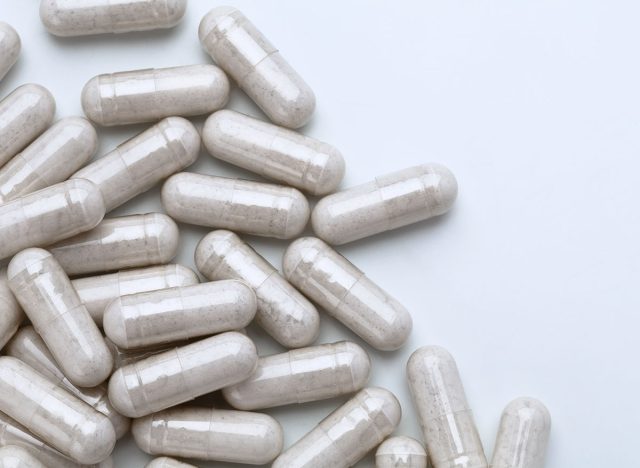
What happens in your gut doesn't just affect your digestion. "Better gut health is connected to better immune function," says Kim Kulp, RDN, gut health expert and partner to Pendulum Therapeutics. In fact, according to 2021 research, 70-80% of immune cells are in the gut!
For better immunity, Kulp recommends one strain of good gut bugs in particular. "Akkermansia muciniphila is a powerful bacterial strain that plays an important role in protecting the gut lining and reducing gut permeability, based on research studies," she says. This probiotic also contains a prebiotic—aka fiber that feeds your good microbes. Your gut and your immune system will thank you.
Liposomal Vitamin C
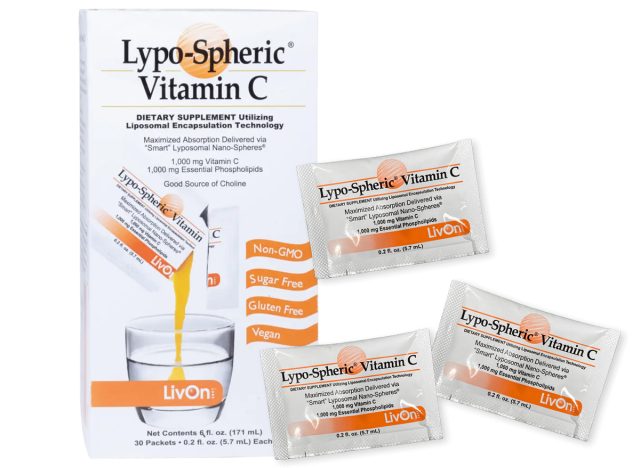
Feeling run down? Give your body some support in the form of vitamin C. "I sometimes recommend 2,000-4,000 milligrams to have a high-quality vitamin C or liposomal vitamin C," says Bess Berger, RD, a registered dietitian specializing in PCOS and menopause at Nutrition by Bess in New Jersey. Some research indicates that liposomal vitamin C might be better absorbed than other varieties. One good option comes from LivOn Laboratories, which comes in packets that you pour into a small volume of water and drink.
Colostrum
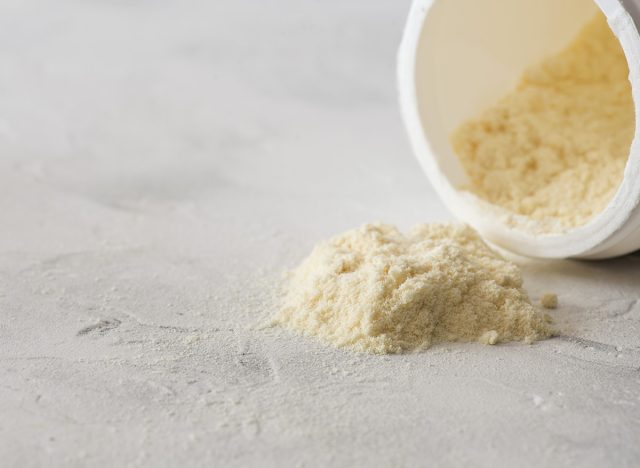
After childbirth, before a mother produces breastmilk, she produces colostrum, a substance rich in nutrients and antioxidants. Now, you can buy colostrum that comes not from new mamas, but from dairy cows. Though it doesn't contain the same nutrient profile as human colostrum, it's a reasonable substitute with benefits for immune health.
"Colostrum contains high levels of immunoglobulins, which help strengthen the immune system [and] fight bacteria and viruses," says Kathryn Piper, RDN, LD, of The Age-Defying Dietitian. "Colostrum may also help reduce the severity of infections if they do occur." You can find colostrum in capsules, powder, or liquid form. Just be sure to talk to your doctor before trying it, Piper says. (It may not be right for people with certain health conditions or on certain medications.) Note, too, that since it comes from cows, colostrum is not vegan.
Adaptogenic Mushrooms
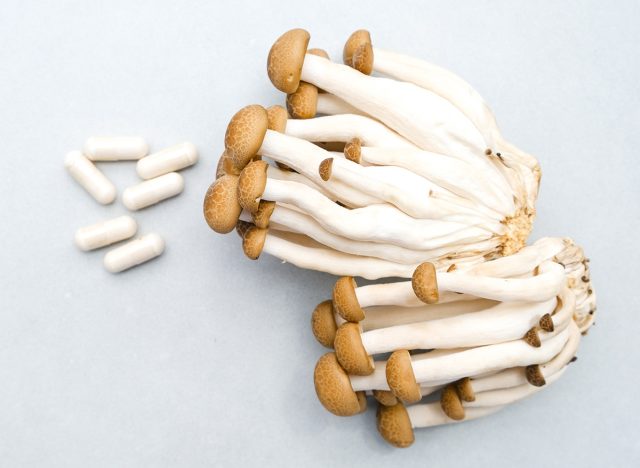
Adaptogens are any herb or mushroom that help your body manage stress—and assaults on your immune system certainly qualify as stress. "In a world where stress is a consequence of living, adaptogenic mushrooms can be one of the best options for supporting both the stress response and the immune system simultaneously," says Sharon Puello, MA, RD, CDN.
Puello says the right adaptogenic fungi, such as reishi, can stimulate the immune system and even promote better sleep. Since good sleep is associated with the ability to fight off infections, it's a win-win for health. Again, for best quality, look for adaptogen supplements that have been third-party tested.
Zinc

According to 2016 research, low zinc levels increase the risk of inflammation, while healthy levels of this mineral help maintain cells in the innate and adaptive immune systems. You can find zinc in lots of common foods like eggs, beans, and whole grains.
Though zinc plays an important role in immune health, that doesn't mean more is always better. Surprisingly, it's more effective when taken in smaller doses. The upper limit for zinc is 40 milligrams per day for both males and females. When choosing a zinc supplement, make sure it doesn't exceed this amount. (Most brands contain 15-30 milligrams per dose.)
Immune-Targeted Multivitamins
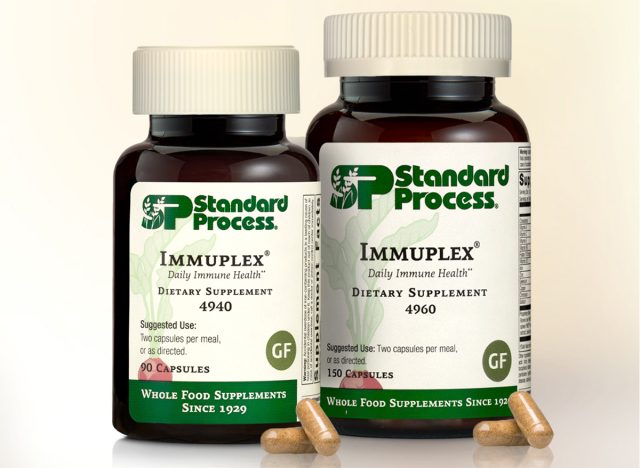
Sometimes it's best to fire on all cylinders. By opting for an immune-focused multivitamin, you can check multiple boxes for immune health. Some supplements contain vitamin D, vitamin C, zinc, and more all in one package.
Berger's favorite multi for immunity: Immuplex by Standard Process. It boasts vitamin A, B vitamins, selenium, chromium, zinc, and other nutrients. "It supports the immune system, helps maintain healthy white blood cell count, and supports natural inflammatory response to fighting infections," she says. "I recommend cycling this supplement during the winter and taking extra if you feel like an infection is starting."
- Source: Vitamin D supplementation to prevent acute respiratory infections: individual participant data meta-analysis.
- Source: Evidence that Vitamin D Supplementation Could Reduce Risk of Influenza and COVID-19 Infections and Deaths
- Source: The Interplay between the Gut Microbiome and the Immune System in the Context of Infectious Diseases throughout Life and the Role of Nutrition in Optimizing Treatment Strategies
- Source: Liposomal-encapsulated Ascorbic Acid: Influence on Vitamin C Bioavailability and Capacity to Protect Against Ischemia–Reperfusion Injury
- Source: Mayo Clinic - Lack of sleep: Can it make you sick?
- Source: Zinc and immunity: An essential interrelation
- Source: Harvard Health Publishing, The Nutrition Source: Zinc









